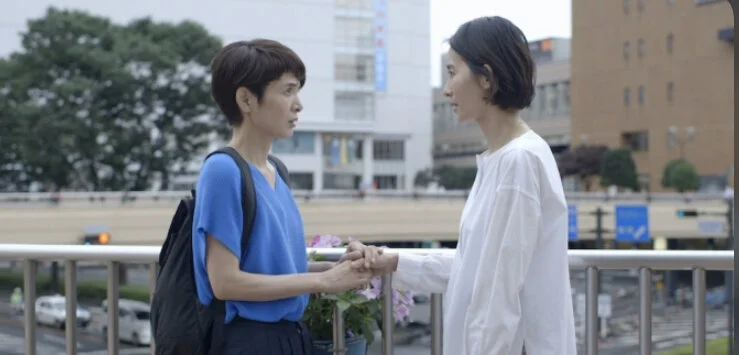Aren’t we lucky to have two Ryusuke Hamaguchi films in the same year? The Japanese director has really come into his own this year. I’ll have thoughts on “Drive My Car” when it is released in a month’s time. His first films, the critically-acclaimed 5-hour “Happy Hour” (didn’t see it) and the underrated “Asako 1 & 2” set the stage for the banner year he’s had.
Hamaguchi’s thoroughly entertaining “Wheel of Fortune and Fantasy,” which has just been released stateside, is a triptych of stories about fate, coincidence, and relationships that underplays its drama for much more satisfying results. There is no formal connection between the tales being told, which makes this film all the more pleasing in its joie-de-vivre to just tell its stories.
In the first chapter, we encounter a model called Meiko (Kotone Furukawa) going home in a cab with a friend who starts excitingly gossiping about a man she just started seeing. It turns out, it’s Meiko’s ex, but she doesn’t reveal that to her friend and instead goes to confront the successful businessman (Ayumu Nakajima) at his office.
In the second story, a student called Nao (Katsuki Mori), married with a child, is having an affair with a young undergraduate, Sasaki (Shouma Kai), who was humiliated by his professor Segawa (Kiyohiko Shubukawa). He tries to convince Sasaki to try and seduce the professor in a honeypot scheme to get him fired.
And in the third and most winning story, Moka (Fusako Urabe) a shy middle-aged woman goes to a high-school reunion and quietly leaves, having not found the person she was looking for. It’s only afterwards that she runs into the person she was seeking: a woman who was her first and only lover. Is it a case of mistaken identity? Is the woman just going along with the act and pretending to be who she isn’t?
Each story is indelibly well-acted, and gets better as it goes along. Much as he did in “Drive My Car,” Hamaguchi isn’t really interested in regular narratives, the glow of these stories is purposely freewheeling, you think you know where it’s headed until it goes the complete opposite direction.
If anything, Hamaguchi is more interested in the poetry of moments and words, conversations that never feel predictable or on-point, just like in real life. The chattiness may irk some who favour more linear storytelling, but it comes at the service of developing sympathy for the plights of these characters; they are fully fleshed people with inherently relatable dilemmas.
The notion of chance and truth is dissected here very much in the same way the more ambitious “Drive My Car” delved into those themes.






